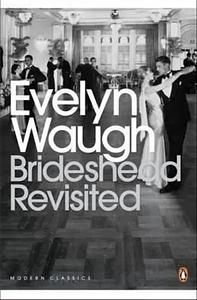You need to sign in or sign up before continuing.
Take a photo of a barcode or cover
3.5/5
Audiobook decent sped up.
Read this since 'Saltburn' was loosely based on the novel. It was decent but heavy emphasis on the loose inspiration for 'Saltburn.' Far more religious, much less scandalous (unless you count divorce being a scandal).
Audiobook decent sped up.
Read this since 'Saltburn' was loosely based on the novel. It was decent but heavy emphasis on the loose inspiration for 'Saltburn.' Far more religious, much less scandalous (unless you count divorce being a scandal).
Narrator is convoluted and difficult to follow, novel setting is male-centric
“Something quite remote from anything the builders intended, has come out of their work, and out of the fierce little human tragedy in which I played; something none of us thought about at the time; a small red flame—a beaten-copper lamp of deplorable design relit before the beaten-copper doors of a tabernacle; the flame which the old knights saw from their tombs, which they saw put out; that flame burns again for other soldiers, far from home, farther, in heart, than Acre or Jerusalem. It could not have been lit but for the builders and the tragedians, and there I found it this morning, burning anew among the old stones.”
I do think that this was not the best book to start out with to get into Evelyn Waugh's body of work, as it is genuinely difficult to get through (as evidenced by the FIVE MONTHS it took me to read this leviathan) but I am, nonetheless, so happy that I did. I thought about DNFing time and time again but I persisted and came out the other end shocked and deeply in love.
An incredibly thought-provoking novel. I've never been particularly interested in religion (I think, ironically enough, that I'm still a little too young for all that) but the theist themes of this story resonated with me even despite that disinterest. The characters, especially the Flytes, are all fascinating and shrouded in the type of well-thought-out mystery that carefully unfolds throughout the story one-by-one and adds to the themes of the book near-perfectly. My one and only qualm is that I feel as though we didn't get enough of certain Flyte siblings, even in those PACKED 300-400 pages. The character interactions and the descriptions of their activities were really the highlights for me (especially the more blissful days in Book 1 (yes, the homosexual subtext is through the roof in those moments and, by the end of the novel it isn't even subtext anymore and I love it)).
On that note, the language used is astounding in vocabulary, sentence structure, and grammar, although, often times, will actually put readers off. The descriptiveness (especially of the architecture of buildings and rooms) will definitely make the reading experience a bit tougher but as long as the reader understands that it serves a purpose within the story, then it shouldn't be as much of a problem.
Overall, I would 100% recommend this book to anyone who wants to get into classics with heavy religious themes, anyone who wants to expand their vocabulary (you'll find a new word every two pages AT LEAST), and anyone who enjoys reading doomed relationships and then crying over them!
I've already downloaded Evelyn Waugh's other novels and look forward to delving deep into his bibliography in the upcoming months! He's certainly set high expectations with this one.
I do think that this was not the best book to start out with to get into Evelyn Waugh's body of work, as it is genuinely difficult to get through (as evidenced by the FIVE MONTHS it took me to read this leviathan) but I am, nonetheless, so happy that I did. I thought about DNFing time and time again but I persisted and came out the other end shocked and deeply in love.
An incredibly thought-provoking novel. I've never been particularly interested in religion (I think, ironically enough, that I'm still a little too young for all that) but the theist themes of this story resonated with me even despite that disinterest. The characters, especially the Flytes, are all fascinating and shrouded in the type of well-thought-out mystery that carefully unfolds throughout the story one-by-one and adds to the themes of the book near-perfectly. My one and only qualm is that I feel as though we didn't get enough of certain Flyte siblings, even in those PACKED 300-400 pages. The character interactions and the descriptions of their activities were really the highlights for me (especially the more blissful days in Book 1 (yes, the homosexual subtext is through the roof in those moments and, by the end of the novel it isn't even subtext anymore and I love it)).
On that note, the language used is astounding in vocabulary, sentence structure, and grammar, although, often times, will actually put readers off. The descriptiveness (especially of the architecture of buildings and rooms) will definitely make the reading experience a bit tougher but as long as the reader understands that it serves a purpose within the story, then it shouldn't be as much of a problem.
Overall, I would 100% recommend this book to anyone who wants to get into classics with heavy religious themes, anyone who wants to expand their vocabulary (you'll find a new word every two pages AT LEAST), and anyone who enjoys reading doomed relationships and then crying over them!
I've already downloaded Evelyn Waugh's other novels and look forward to delving deep into his bibliography in the upcoming months! He's certainly set high expectations with this one.
Some of the gayest not technically gay fiction ever put to page
Who among us hasn’t had an affair with the sister of your college bestie?
Who among us hasn’t had an affair with the sister of your college bestie?
Beautiful writing. I liked the book up until chapter 7, and then I found that I loved that particular chapter. I could not put it down. After 7 it was very good too.
not as funny as Handful of Dust. both protagonists go on an extended South-American journey. huh?
hrmmmm. I suspect I would enjoy it more reading through a second time, but alas, who has time for that. Perhaps one day (but probably not). Glad I hung in there past the first 100 pages (I almost gave up, and it did significantly improve), but by then damage was done.
There seems to be no end to the fascination author’s and their audience (myself included) have with the English upper class and royalty in the pre ww2 area, from Upstairs Downstairs to Downtown Abbey and of course Brideshead Revisited. Maybe it’s the nostalgia for the glamour and simplicity of a lost area, even though I suspect the reality of the time might have been far more mundane than described on screen.
In the novel Brideshead the aristocracy however only serves as a backdrop for the real story about the Marchmain family as seen by our narrator Charles Ryder.
It’s a masterfully crafted story where the narrative shifts from whimsical light to funny to tragic and even romantic without effort, each character is chiselled clearly with all their faults.
It is a surprisingly open story about homosexual love without any condemnation or consequences in a time where the mere mention of the practice was illegal but it’s most and all a story about religion and the concept of sin especially.
There’s also a more subtle story about Charles as a social climber and something of a chameleon who becomes the person other people wants him to be, but also a person who shows a stunningly brutal lack of conscience and empathy towards his wife and children.
Strangely enough I enjoyed the story very much and even sympathised with and understood some of the characters, even though the religious obsession feels excessive, especially at the very ending where Charles becomes a convert ,which makes little or no sense, in the context of the story.
The narration by Jeremy Irons is (obviously) superb
In the novel Brideshead the aristocracy however only serves as a backdrop for the real story about the Marchmain family as seen by our narrator Charles Ryder.
It’s a masterfully crafted story where the narrative shifts from whimsical light to funny to tragic and even romantic without effort, each character is chiselled clearly with all their faults.
It is a surprisingly open story about homosexual love without any condemnation or consequences in a time where the mere mention of the practice was illegal but it’s most and all a story about religion and the concept of sin especially.
There’s also a more subtle story about Charles as a social climber and something of a chameleon who becomes the person other people wants him to be, but also a person who shows a stunningly brutal lack of conscience and empathy towards his wife and children.
Strangely enough I enjoyed the story very much and even sympathised with and understood some of the characters, even though the religious obsession feels excessive, especially at the very ending where Charles becomes a convert ,which makes little or no sense, in the context of the story.
The narration by Jeremy Irons is (obviously) superb
4.4/5 — I love Waugh's writing! Definitely one of my favorites this month!
(The film adaptation is quite disappointing, though.)
(The film adaptation is quite disappointing, though.)


